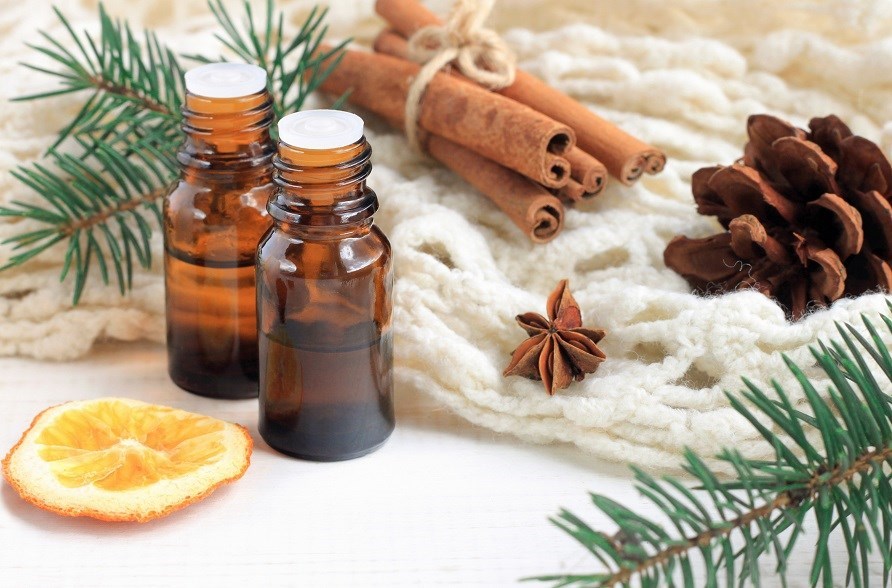Essential Oils and GRAS Status
Essential oils are popular as fragrances in aromatherapy and skin care products, but some of them can also be used as seasonings in food.
- Warning labels for essential oils
- What is GRAS status?
- Essential oils in cooking
Essential oils are highly concentrated oils derived from plants, which depending on their origin can be used for aromatherapy, fragrances in skin care products and seasonings in food. Due to their highly concentrated content, these can be dangerous to consume, and in this article we will go through warning labels, GRAS status and edible essential oils.
Tip! Read more about why essential oils are good and how to choose the right essential oil.

Warning labels for essential oils
Pure essential oils must be marked with clear warning symbols, as in pure form the oils can be corrosive and should not be used either on the skin or ingested. If you happen to swallow or get pure essential oil on your skin, rinse thoroughly with water the affected area immediately and, if necessary, seek medical attention. The marked warning labels may seem scary, but the warnings only apply to essential oil in pure, concentrated form - not diluted. An essential oil must be diluted with another oil, skin care product or food at a concentration of max 2%. Essential oils that can be used in cooking have a so-called GRAS status, which means that they can be used in diluted form as a seasoning.
Warning essential oil
Warning symbols for essential oils apply only in concentrated form, not diluted!

What is GRAS status?
GRAS status means that an essential oil can be used as a seasoning in food. GRAS stands for Generally Recognized As Safe, i.e. considered to be a safe product by experts. According to guidelines, all substances used in food and as food additives must be controlled and approved according to the conditions of the intended area of use.
List of GRAS oils
| Essential oil | Latin name |
| • Orange | (Citrus sinensis) |
| • Basil | (Ocimum basilicum) |
| • Bergamot | (Citrus bergamia) |
| • Lemon | (Citrus limon) |
| • Lemongrass | (Cymbopogon flexuosus) |
| • Lemon balm | (Melissa officinalis) |
| • Juniper | (Juniperus communis) |
| • Grapefruit | (Citrus X paradisi) |
| • Camomile | (Anthemis nobilis) |
| • Cinnamon | (Cinnamomum zeylanicum) |
| • Cassia cinnamon | (Cinnamomum cassia) |
| • Spearmint | (Mentha spicata) |
| • Clove | (Eugenia caryophyllata) |
| • Thyme | (Thymus vulgaris) |
| • Lime | (Citrus aurantifolia) |
| • Marjoram | (Origanum majorana) |
| • Clary sage | (Salvia sclarea) |
| • Oregano | (Origanum vulgare) |
| • Peppermint | (Mentha piperita) |
| • Bitter orange | (Citrus aurantium) |
| • Rose geranium | (Pelargonium graveolens) |
| • Rosemary | (Rosmarinus officinalis) |
| • Tangerine | (Citrus reticulata) |
| • Ylang Ylang | (Cananga odorata) |
Essential oils in cooking
Essential oils that can be used in cooking have a very strong fragrance, and only very small drops are needed to season a whole dish or baked goods. For example, use a couple of drops of orange or lemon oil instead of grated peel in a cake or a couple of drops of rosemary or oregano oil in an entire dish. Be careful not to add too much, as the oils can easily take over with their concentrated taste.

